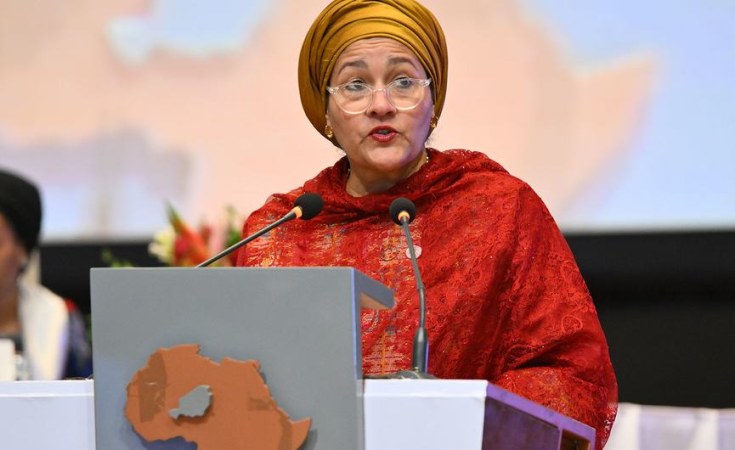The Deputy Secretary General of the United Nations, Ms. Amina Mohammed has advised African leaders to support and invest in environmental and sustainability solutions that have their roots in the continent.
Mohammed, gave the advice yesterday, at the opening ceremony of the Ninth Session of the Africa Regional Forum on Sustainable Development (ARFSD-9), holding in Niamey, Niger Republic, where she tasked African leaders to understand that true African-led solutions that were born in the continent would enable them meet the challenges of Agenda 2063 and the SDGs.
She also tasked the African head of states to ensure that digital economy would serve by ensuring that young people would play a key role in its implementation.
She said: "When the world leaders, including our 54 African leaders, gather for the SDG Summit next September, it is solutions that are likely arising in Africa that must be supported and must be invested in."
According to her, Africa was faced with, "incredible complexities in our environment in which we must achieve so much with so little and urgently for our people and the environment that we live in.
"We are doing so with the common understanding that with true Africa led solutions born in Africa soil we can change force and arise to the challenge of Agenda 2063 and the Sustainable Development Goals (SDGs).
"We must ensure that the emerging green and digital economies will serve African people and the national environment and key to the implementation will be the inclusion of our young people."
Amina told African leaders that this was one of the moments to come together to fight for the SDGs and ensure that the promises that were made in 2015 were kept.
These promises, she said, must deliver in three key areas, especially new financial architecture that would enable Africa greater access to finance.
She said: "First, we must re-energise nationalisation promise, which is clear that after seven years of implementation we are not taking the bold decisions by making the needed investments to drive transformative progress.
"At the summit leaders will set out clear ambitions to reduce poverty and inequality by 2027 and 2030. And we must do this by making investments in Africa, investments in our economy and investment in our people, especially in our women and our youths.
"We must convey a clear commitment to fully align national institutions and budgets with the framing of the sustainable development goals.
"And we must put forward country plans to drive critical SDGs transformations from energy to food systems to digital technology and to social protection plan like in education and make real our commitment that we leave no one behind."
She also said, "this summit must deliver on tangible progress in the area of SDGs financing" as the financing gap to achieve the SDGs and deliver climate resilience has continued to widen at a time when 43 per cent of African nations are in, or nearing, debt distress mostly driven by external factors that are beyond the control of these governments.
"This cannot be acceptable. The secretary general of the United Nations has called on the G20 to unlock on SDG stimulus of at least $500 billion annually to developing countries, especially in Africa.
"On so many fronts our world is on fire and putting off that fire demands equality in our support and not hypocrisy and broken promises. More broadly, we also need systemic reforms to global financial architecture, which today is not fit for purpose and remains to short term oriented, crisis prone and fundamentally skewed toward the interest of the rich.
"Through the SDG stimulus, coupled with initiatives like the green agenda, we will continue to hope for such reforms. This includes ensuring that African countries can access debt relief, right downs and additional finance to desperately need to recover and plan. We need a breakthrough in access to African financing so that we can urgently scale up required investments.
"Thirdly, the summit must reinvigorate the concept of genuine partnerships. That means engaging the young people, civil society and the global public and the co-creators of our efforts to transform the world by 2030."


